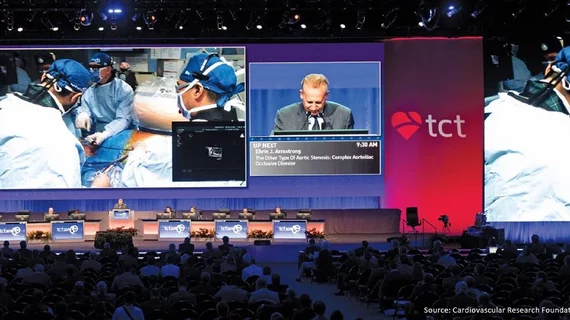TCT 2020 to be held virtually due to COVID-19 concerns
The annual Transcatheter Cardiovascular Therapeutics (TCT) conference is going virtual in 2020 due to concerns related to the ongoing COVID-19 pandemic, according to an announcement from the Cardiovascular Research Foundation (CRF).
TCT 2020, now known as TCT Connect, is scheduled to broadcast Oct. 14-18, 2020.
“TCT Connect will deliver the high-quality education, training, and clinical science our meeting attendees have come to expect,” according to a message signed by Juan Granada, MD, CRF president and CEO, and Tricia Rawh, executive director of the CRF Center of Education. “The event will feature live case-based transmissions from around the globe, late-breaking clinical trials and science, virtual training, and countless opportunities to learn and engage with the brightest minds in interventional cardiovascular medicine.”
TCT 2020 is just the latest medical conference impacted by COVID-19. ACC.20/WCC, the joint meeting of the American College of Cardiology and World Congress of Cardiology, was forced to cancel back in March. Two other significant cardiology conferences, the Society for Cardiovascular Angiography & Interventions’ 2020 Scientific Sessions and European Society of Cardiology’s Frontiers in CardioVascular Biomedicine 2020, were both also canceled due to the outbreak.
Organizations with more time to prepare have fortunately been able to avoid an outright cancellation and instead move to a web-based format. On Wednesday, May 26, for example, the Radiological Society of North America (RSNA) announced that RSNA 2020 will be a virtual event.

